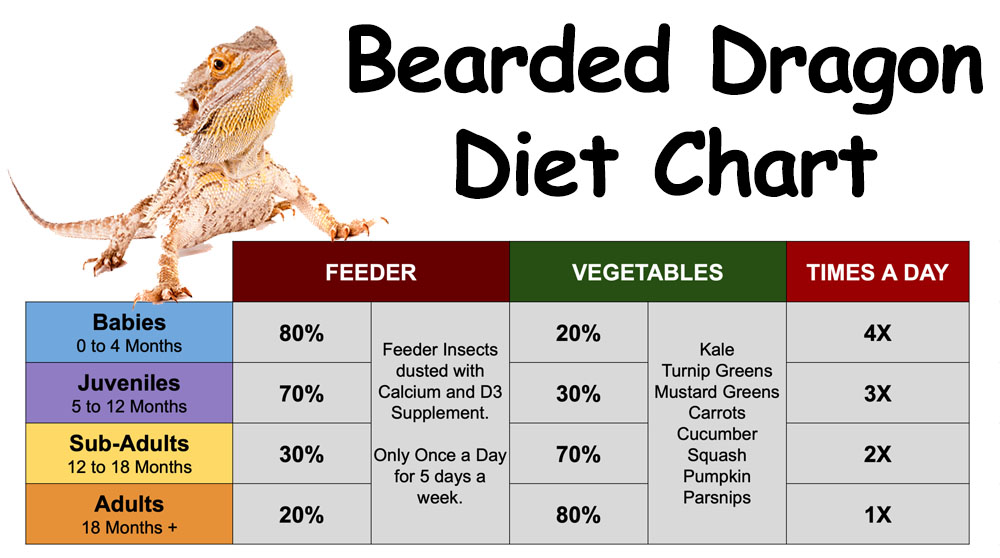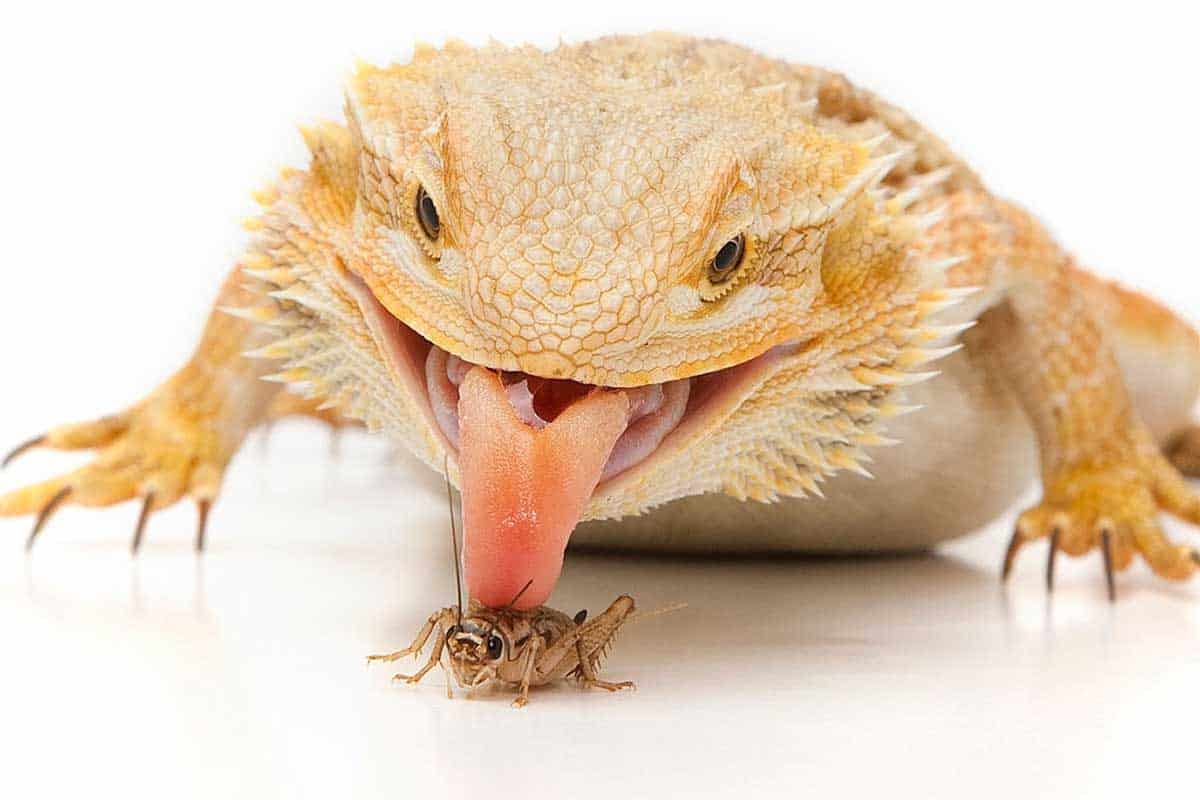Bearded dragon food nonos are a crucial aspect of reptile care, ensuring the well-being of these beloved pets. Understanding what foods to avoid is essential for maintaining a balanced diet and preventing health issues. This guide delves into the specific foods that should be kept out of a bearded dragon’s reach, providing valuable information for responsible reptile owners.
From common household items to certain fruits and vegetables, this comprehensive guide covers all the foods that can be harmful to bearded dragons. By following these guidelines, you can ensure that your reptile companion enjoys a long and healthy life.
Bearded Dragon Dietary Requirements

Bearded dragons, fascinating creatures native to the arid regions of Australia, possess unique dietary needs that must be carefully met to ensure their well-being. Understanding these requirements is crucial for providing them with a balanced and nutritious diet that supports their optimal health and longevity.
A balanced diet for bearded dragons should consist of a variety of food items that provide essential nutrients, including protein, calcium, vitamins, and minerals. Each nutrient plays a specific role in maintaining the dragon’s health and preventing nutritional deficiencies.
Protein
Protein is essential for building and repairing tissues, producing enzymes, and regulating hormones. Bearded dragons require a diet high in protein, which can be obtained from insects, such as crickets, dubia roaches, and mealworms, as well as from plant-based sources like leafy greens and vegetables.
Calcium
Calcium is crucial for strong bones and teeth. Bearded dragons are prone to metabolic bone disease (MBD) if they do not receive adequate calcium in their diet. Calcium can be provided through supplementation, such as calcium powder or liquid, or through the consumption of insects that have been “gut-loaded” with calcium-rich foods.
Vitamins
Vitamins are essential for a variety of bodily functions, including growth, metabolism, and immune system health. Bearded dragons require a variety of vitamins, including vitamin A, vitamin D3, and vitamin E. These vitamins can be obtained from a variety of food sources, including insects, leafy greens, and vegetables.
Foods to Avoid
Bearded dragons have specific dietary needs and should not be fed foods that are toxic or harmful to them. Some common foods that should be avoided include:
- Avocados:Contain persin, a toxin that can cause respiratory distress and heart damage in bearded dragons.
- Citrus fruits:High in citric acid, which can cause digestive upset and kidney damage.
- Grapes and raisins:Contain tartaric acid, which can lead to kidney failure.
- Mushrooms:Can contain toxins that are harmful to bearded dragons.
- Onions and garlic:Can cause anemia and digestive problems.
- Spinach and rhubarb:High in oxalates, which can bind with calcium and prevent its absorption.
- Dairy products:Bearded dragons are lactose intolerant and should not be fed milk or cheese.
Instead, bearded dragons should be fed a diet consisting of insects, vegetables, and fruits that are safe for them to consume.
Vegetables: Bearded Dragon Food Nonos
Vegetables are an essential part of a bearded dragon’s diet, providing essential vitamins, minerals, and fiber. When choosing vegetables for your bearded dragon, it is important to select a variety of colors and types to ensure they are getting a well-rounded diet.
The following table lists some of the most common safe vegetables for bearded dragons, along with their nutritional value and serving sizes:
Leafy Greens
- Collard greens:High in calcium, vitamin A, and vitamin C. Serve 2-3 times per week.
- Dandelion greens:High in calcium, vitamin A, and vitamin C. Serve 2-3 times per week.
- Mustard greens:High in calcium, vitamin A, and vitamin C. Serve 2-3 times per week.
- Turnip greens:High in calcium, vitamin A, and vitamin C. Serve 2-3 times per week.
- Kale:High in calcium, vitamin A, and vitamin C. Serve 2-3 times per week.
- Spinach:High in calcium, vitamin A, and vitamin C. Serve 1-2 times per week.
Root Vegetables, Bearded dragon food nonos
- Carrots:High in vitamin A and beta-carotene. Serve 1-2 times per week.
- Sweet potatoes:High in vitamin A, vitamin C, and fiber. Serve 1-2 times per week.
- Butternut squash:High in vitamin A, vitamin C, and fiber. Serve 1-2 times per week.
Fruits
- Blueberries:High in antioxidants and vitamin C. Serve 1-2 times per week.
- Strawberries:High in vitamin C and manganese. Serve 1-2 times per week.
- Mango:High in vitamin A and vitamin C. Serve 1-2 times per week.
Insects
Insects constitute a significant portion of a bearded dragon’s diet, providing essential nutrients and enrichment.
Suitable insects for bearded dragons include:
- Dubia roaches
- Crickets
- Mealworms
- Superworms
- Silkworms
Nutritional Information
Insects vary in nutritional value, with some providing more protein, fat, and calcium than others. Here’s a general breakdown:
| Insect | Protein | Fat | Calcium |
|---|---|---|---|
| Dubia Roach | 20% | 10% | 1% |
| Cricket | 18% | 5% | 0.5% |
| Mealworm | 15% | 20% | 0.1% |
| Superworm | 14% | 25% | 0.1% |
| Silkworm | 12% | 5% | 0.2% |
Feeding Guidelines
Feed insects to your bearded dragon 2-3 times a day, depending on their age and size. Young dragons require more frequent feedings than adults. Offer a variety of insects to ensure a balanced diet.
Live vs. Dried Insects
Live insects provide more nutritional value than dried insects. However, live insects can also carry parasites and may bite your dragon. Dried insects are a convenient alternative, but they should be rehydrated before feeding.
Other Food Sources

In addition to the staple diet of insects and vegetables, bearded dragons can also benefit from other food sources such as eggs, tofu, and fruits. These foods provide a variety of nutrients and can help to add variety to your dragon’s diet.
Eggs
Eggs are a good source of protein and calcium for bearded dragons. They can be offered cooked or raw, but cooked eggs are easier for dragons to digest. When feeding eggs to your dragon, remove the shell and chop the egg into small pieces.
Serving size:1-2 eggs per week
Tofu
Tofu is a good source of protein and calcium for bearded dragons. It is also low in fat and calories. Tofu can be offered cooked or raw, but cooked tofu is easier for dragons to digest. When feeding tofu to your dragon, chop it into small pieces.
Serving size:1-2 tablespoons per week
Fruits
Fruits are a good source of vitamins and minerals for bearded dragons. However, fruits should only be offered as an occasional treat, as they are high in sugar. When feeding fruits to your dragon, remove the skin and seeds, and chop the fruit into small pieces.
Serving size:1-2 tablespoons per week
Hydration

Proper hydration is essential for the health and well-being of bearded dragons. These reptiles are native to arid environments and have adapted to conserve water. However, they still require a regular supply of fresh water to maintain their bodily functions.
Dehydration can lead to a variety of health problems, including lethargy, weight loss, and kidney failure.There are several ways to ensure that your bearded dragon is getting enough water. One of the most important is to provide a shallow water bowl that is large enough for the dragon to soak in.
The water should be changed daily and kept clean. You can also mist your dragon with water several times a day, especially during hot weather. Bathing your dragon once or twice a week can also help to keep it hydrated.
FAQ Section
What are the most common bearded dragon food nonos?
Common bearded dragon food nonos include avocado, citrus fruits, grapes, onions, garlic, and dairy products.
Why is it important to avoid these foods?
These foods can be toxic or harmful to bearded dragons, causing digestive issues, metabolic problems, or even death.
What are some safe alternatives to these nonos?
Safe alternatives include leafy greens (such as collard greens, dandelion greens, and romaine lettuce), vegetables (such as carrots, bell peppers, and sweet potatoes), and insects (such as crickets, mealworms, and dubia roaches).
